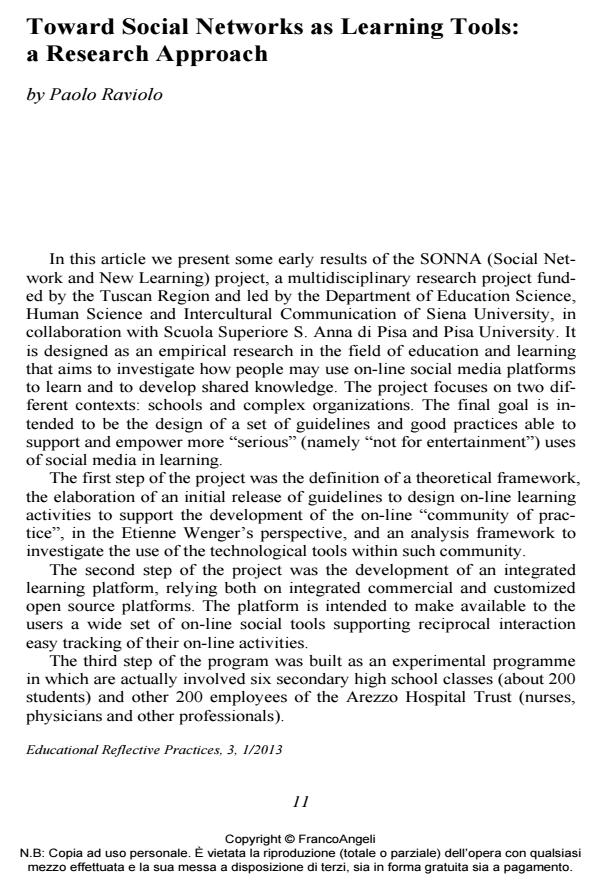Toward Social Networks as Learning Tools: a Research Approach
Titolo Rivista EDUCATIONAL REFLECTIVE PRACTICES
Autori/Curatori Paolo Raviolo
Anno di pubblicazione 2013 Fascicolo 2013/1
Lingua Inglese Numero pagine 16 P. 11-26 Dimensione file 352 KB
DOI 10.3280/ERP2013-001002
Il DOI è il codice a barre della proprietà intellettuale: per saperne di più
clicca qui
Qui sotto puoi vedere in anteprima la prima pagina di questo articolo.
Se questo articolo ti interessa, lo puoi acquistare (e scaricare in formato pdf) seguendo le facili indicazioni per acquistare il download credit. Acquista Download Credits per scaricare questo Articolo in formato PDF

FrancoAngeli è membro della Publishers International Linking Association, Inc (PILA), associazione indipendente e non profit per facilitare (attraverso i servizi tecnologici implementati da CrossRef.org) l’accesso degli studiosi ai contenuti digitali nelle pubblicazioni professionali e scientifiche.
This article presents an overview and some early results of the research project SONNA (Social Network and New Learning). SONNA is designed as an action research in the field of education and learning and it aims to investigate how people may use on-line social media platforms to learn and to develop shared knowledge, in two different contexts: schools and organizations. The project is intended to design a set of guidelines and good practices to empower more "serious" (namely "not for entertainment") uses of social media in learning. We present a brief overview of the research SONNA and some early results from the recruitment questionnaire submitted to the first users involved in a field experimentation in order to understand their attitude toward a serious use of social media as learning tools.
Paolo Raviolo, Toward Social Networks as Learning Tools: a Research Approach in "EDUCATIONAL REFLECTIVE PRACTICES" 1/2013, pp 11-26, DOI: 10.3280/ERP2013-001002